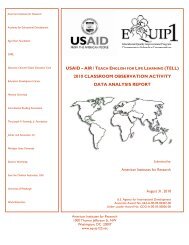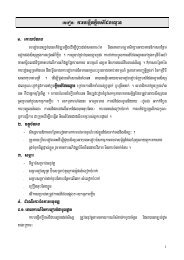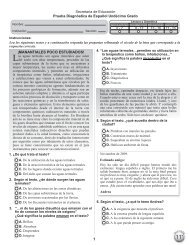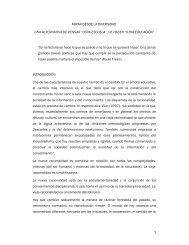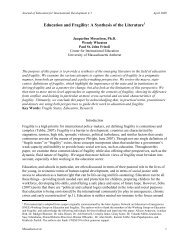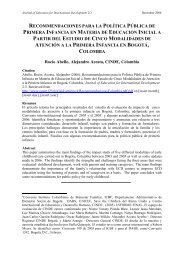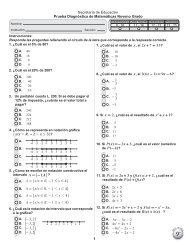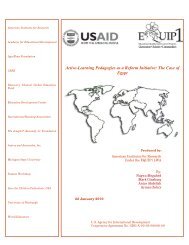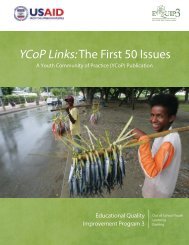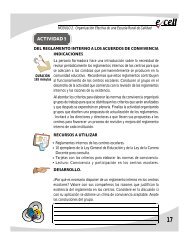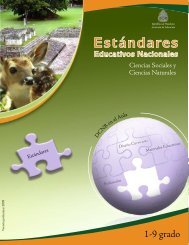The Power of Persistence: Education System ... - EQUIP123.net
The Power of Persistence: Education System ... - EQUIP123.net
The Power of Persistence: Education System ... - EQUIP123.net
You also want an ePaper? Increase the reach of your titles
YUMPU automatically turns print PDFs into web optimized ePapers that Google loves.
CASE ANALySIS: DIMENSIONS OF REFORM<br />
Technical Dimensions<br />
Numerous technical interventions have been applied at the pre-primary, primary,<br />
and secondary levels such as: curriculum development and revision; textbook<br />
distribution; student assessment; pr<strong>of</strong>essional development system revision;<br />
parent and community participation; and health and technology programs.<br />
However, a unique feature <strong>of</strong> El Salvador’s reform is the role that technical<br />
programs such as EDUCO played in creating momentum for other educational<br />
policies. Initially created out <strong>of</strong> necessity—and reinforced by the national<br />
emphasis on democratization, the global discourse on access and community<br />
participation, and the almost unflagging support from donors—these programs<br />
became foundational to Salvadoran education reform.<br />
Between 1991 and 1998, EDUCO schools grew from 8,416 to 206,336 students,<br />
representing 25 percent <strong>of</strong> total public sector enrollment and 40 percent <strong>of</strong> rural<br />
enrollment (Cuéllar-Marchelli, 2003). Studies conducted at repeated intervals,<br />
many by the World Bank, maintained the focus on EDUCO, informed MINED,<br />
and helped to adjust policy and communications as necessary. EDUCO received<br />
the World Bank Presidential Award for Excellence in 1997 and was highlighted<br />
by the Inter-American Development Bank (IDB) as a successful experience <strong>of</strong><br />
community education management. <strong>The</strong>se well-publicized successes created<br />
space for dialogue at the national and local levels thereby amplifying the sense <strong>of</strong><br />
common ownership among MINED, NGOs, international agencies, opposition<br />
political parties, the teachers’ union, schools, and communities. <strong>The</strong> recognized<br />
technical success <strong>of</strong> the EDUCO program enhanced MINED’s credibility and<br />
expanded the Minister <strong>of</strong> <strong>Education</strong>’s political power to initiate new reforms.<br />
Institutional Dimensions<br />
At the beginning <strong>of</strong> the reform period, a World Bank sector assessment<br />
concluded that “the principle constraints to reforming the education system in<br />
El Salvador [were] not economic—[but rather] institutional and cultural.” (Peña,<br />
1995) Over time, the perceived success <strong>of</strong> technical interventions helped build<br />
confidence in the institutions—schools, ACEs, CDEs, and MINED—and created<br />
a virtuous cycle that provided greater latitude for other MINED projects. <strong>The</strong>se<br />
initial steps were reinforced by corresponding changes in the legal framework<br />
governing education management and finance and further strengthened<br />
through capacity building programs for personnel at all levels <strong>of</strong> the system.<br />
Institutionally, the sector was generally able to keep pace with the technical and<br />
organizational demands.<br />
SECTION 2: lESSONS fROM COUNTRY CASE STUdIES<br />
73



